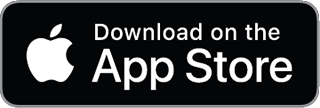Guide to Opening a Business Bank Account
Starting a business is exciting, but let's be honest—the administrative side can feel overwhelming. One of the most important early steps? Opening a business bank account. If you're wondering whether you really need one or what it takes to get started, you're in the right place.
Why Every Business Needs a Dedicated Bank Account
Think about it: Would you use your friend's wallet to pay for your groceries? Probably not. The same logic applies to mixing business and personal finances. Here's why separating them matters:
Financial Clarity When tax season rolls around, you'll thank yourself for keeping clean records. No more scrolling through months of statements trying to figure out if that $47 charge was for coffee with a client or your weekend latte habit.
Legal Protection If you've formed an LLC or corporation, separating finances isn't just smart—it's legally required. This separation protects your personal assets if your business faces legal issues or debt. Even sole proprietors benefit from this protective barrier.
Professional Credibility Nothing says "amateur hour" quite like asking clients to make checks out to your personal name. A business account means professional checks, streamlined invoicing, and the credibility that comes with running a legitimate operation.
Access to Business Banking Perks Business accounts often unlock benefits you can't get with personal banking: lines of credit, business credit cards with rewards, merchant services for accepting payments, and purchase protection that keeps your customers' information secure.
Types of Business Bank Accounts Explained
Not all business accounts are created equal. Here's what's available:
Business Checking Account This is your workhorse account. You'll use it for daily transactions—writing checks, making deposits, withdrawing cash, and using your business debit card. It's FDIC insured and works just like a personal checking account, but for business.
Business Savings Account Building an emergency fund or saving for a big purchase? A business savings account lets you stash cash while earning interest. Just note that many banks still limit these accounts to six withdrawals per month, and some charge fees.
Certificate of Deposit (CD) Account If you have money you won't need to touch for a while, a CD offers higher interest rates in exchange for locking your funds in for a set period. Early withdrawal? Expect to pay a penalty.
Merchant Account If you accept credit or debit card payments, you'll need a merchant account. This intermediary account processes payments before transferring funds to your main business account. They typically come with fees and multi-year contracts, so read the fine print.
What You'll Need to Open Your Account
Gather these documents before heading to the bank:
Personal Identification
- Your Social Security number
- Two forms of government-issued ID (driver's license, state ID, or passport)
Business Documentation
- Employer Identification Number (EIN): You can apply online through the IRS. Sole proprietors may not legally need one, but getting an EIN adds a layer of identity fraud protection
- Business name documentation: This could be your DBA ("doing business as") certificate if you operate under a name other than your own
- Entity-specific paperwork: LLCs need their articles of organization, corporations need articles of incorporation, and partnerships need partnership agreements
Choosing the Right Bank: What to Consider
Don't just go with the first bank you find. Take time to compare options:
Fee Structure Banking fees are tax-deductible, but you'd rather not pay them at all. Look beyond "no monthly fees" claims and check charges for cash deposits, wire transfers, debit card usage, and account maintenance.
Minimum Balance Requirements Brick-and-mortar banks often require minimum balances. If your account dips below the threshold, fees kick in. For businesses with fluctuating cash flow, seek out accounts with no minimum balance requirements.
Relationship Banking Benefits Planning to apply for a loan or line of credit down the road? Choosing a bank with lending services can streamline future financing. Some accounts even include preapproved credit lines when you open the account.
Interest Rates and Growth Potential If you're building business savings, interest rates matter. Compare rates across institutions to maximize your money's growth potential.
ATM Access and Convenience Need regular cash access? Make sure your bank has ATMs nearby—preferably fee-free ones. Some online banks partner with ATM networks to offer customers free access to thousands of locations.
Common Questions Answered
Can I open a business account without an LLC? Absolutely. Business bank accounts are available for sole proprietorships, partnerships, S corps, C corps, and LLCs. You don't need to form an LLC first.
How much money do I need to open an account? It varies wildly—from as little as $25 to several hundred dollars. However, watch out for minimum daily balance requirements that might be higher than the opening deposit.
Do I really need an EIN? Sole proprietors and single-member LLCs can use their Social Security number, but getting an EIN is free, quick, and provides better identity protection. Plus, you'll need one if you plan to hire employees, operate as a partnership or corporation, or file certain tax returns.
Can sole proprietors use personal accounts for business? Legally, yes. Practically, it's a nightmare. Mixing finances makes tax preparation complicated, creates bookkeeping headaches, and looks unprofessional to clients and vendors.
The Bottom Line
Opening a business bank account isn't just administrative busywork—it's a fundamental step in building a sustainable, professional business. Yes, it requires some paperwork upfront. Yes, you'll need to shop around for the right fit. But the clarity, protection, and credibility you gain are worth every minute spent setting it up properly.
Your business deserves its own financial identity. Give it one.
Ready to separate your business finances from your personal ones? Research local and online banks, gather your documents, and take that important step toward financial clarity. Your future self will thank you.
